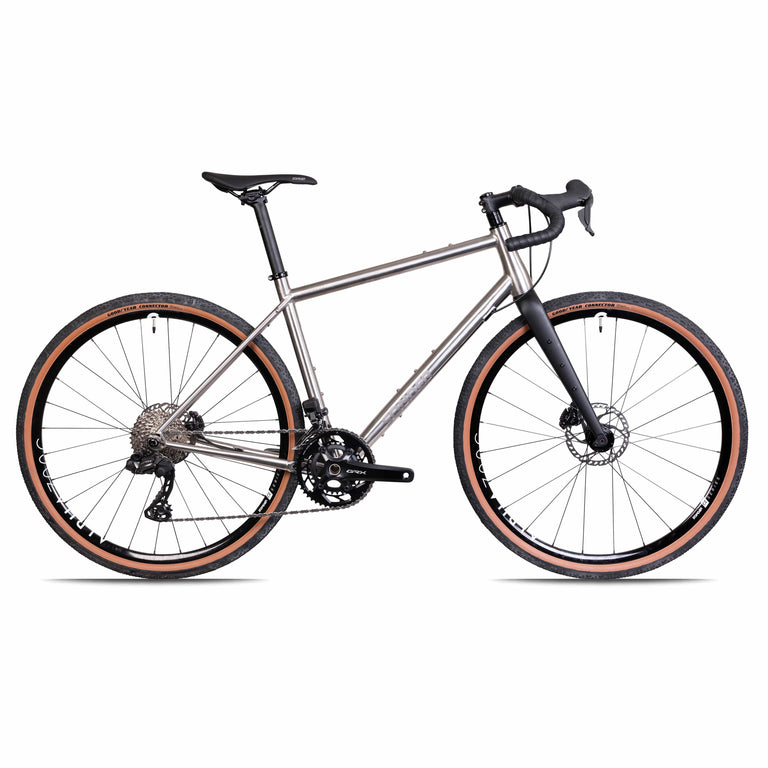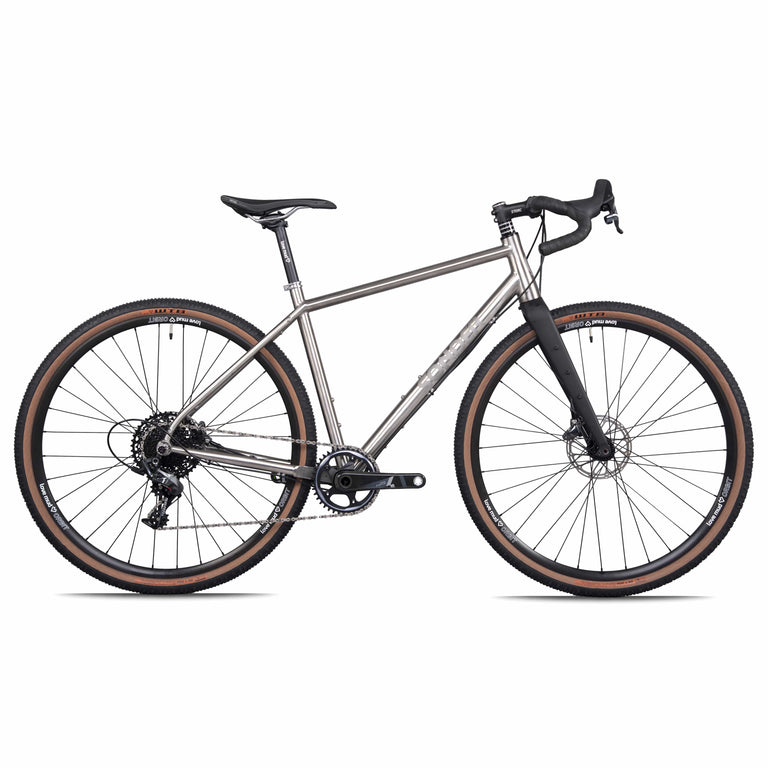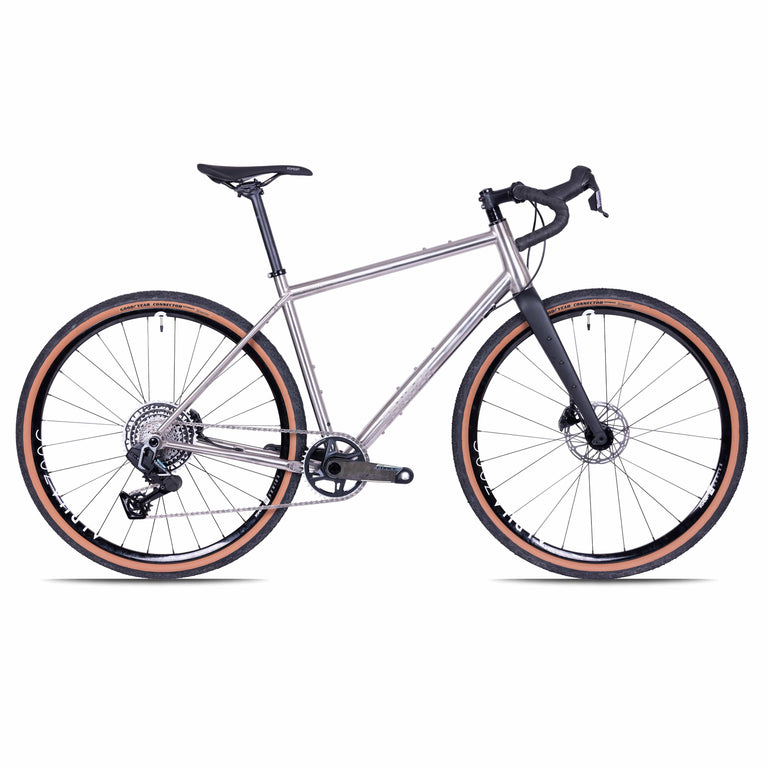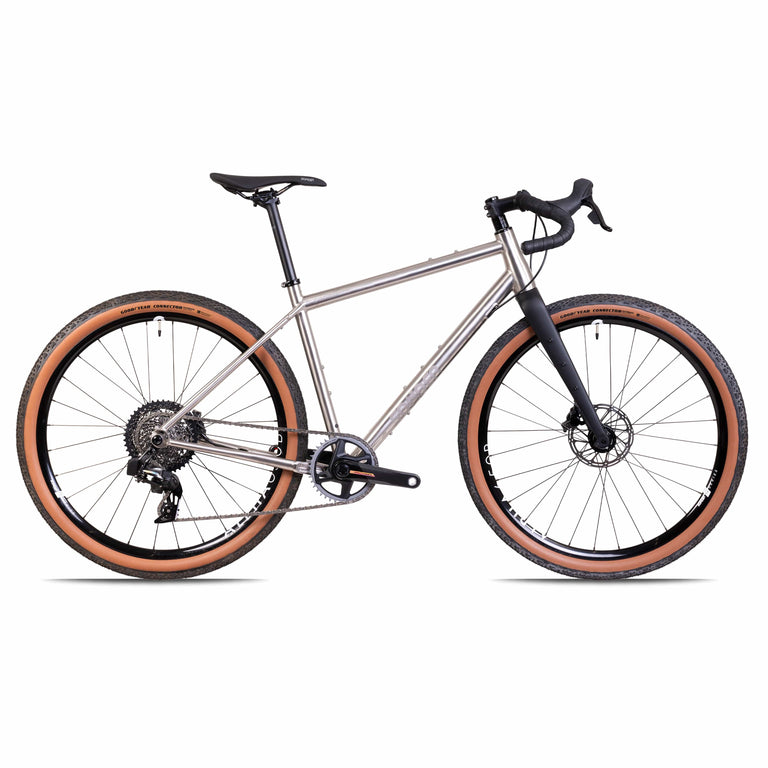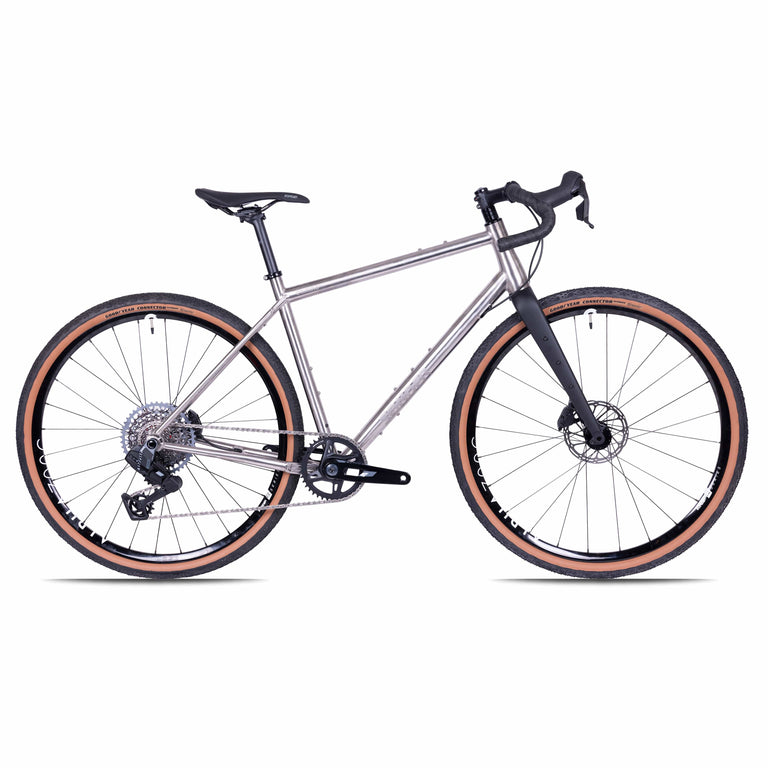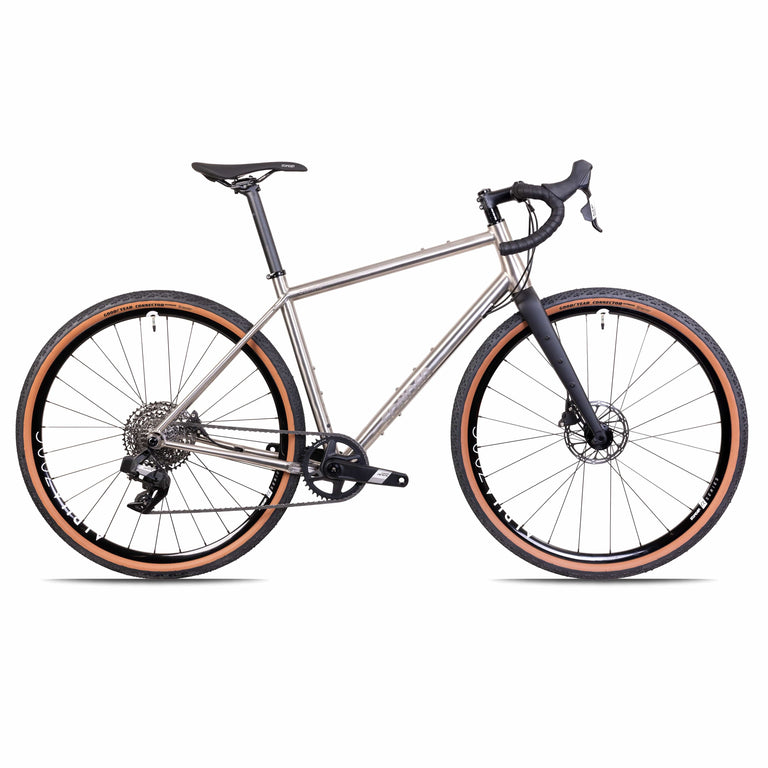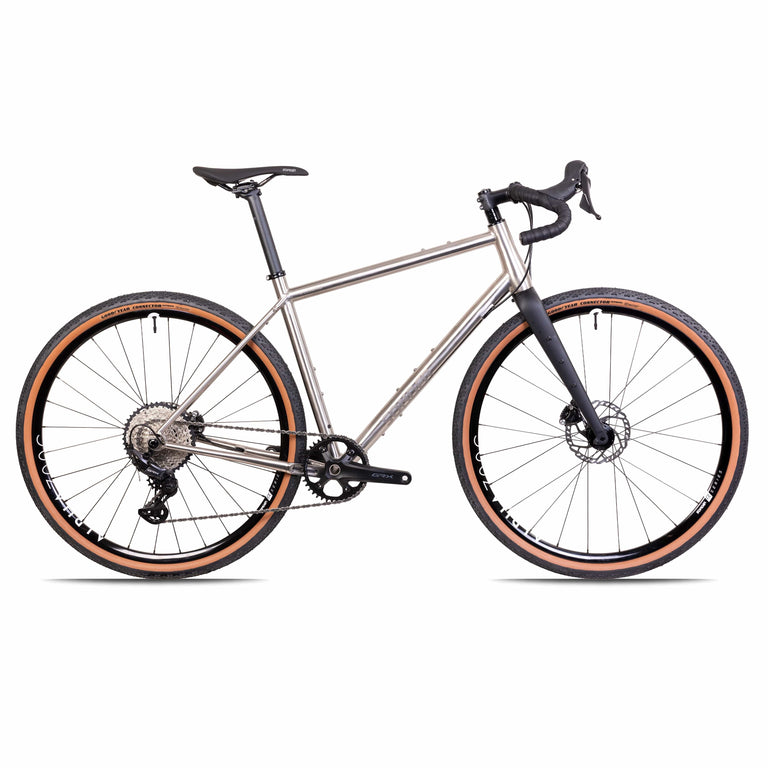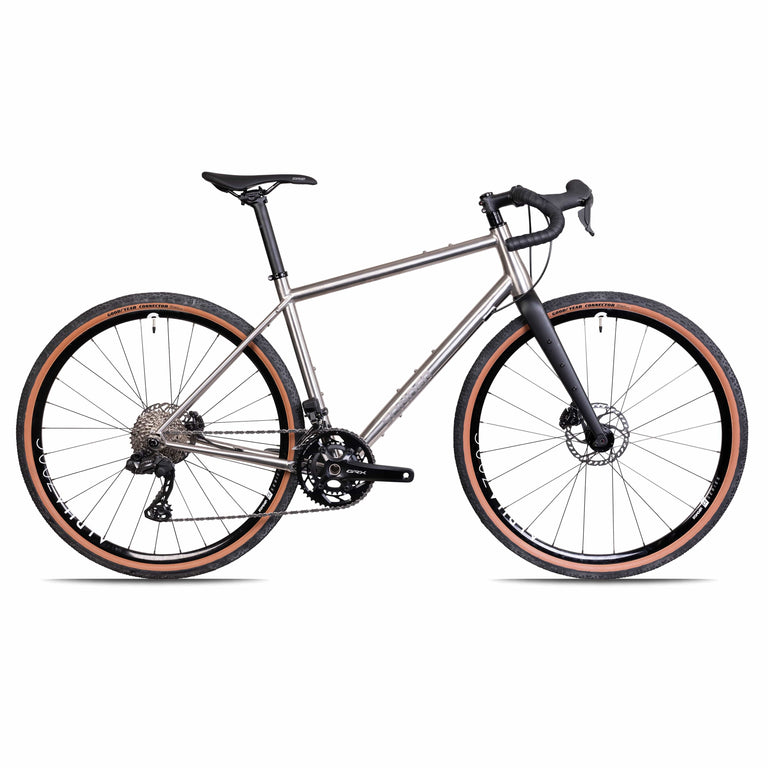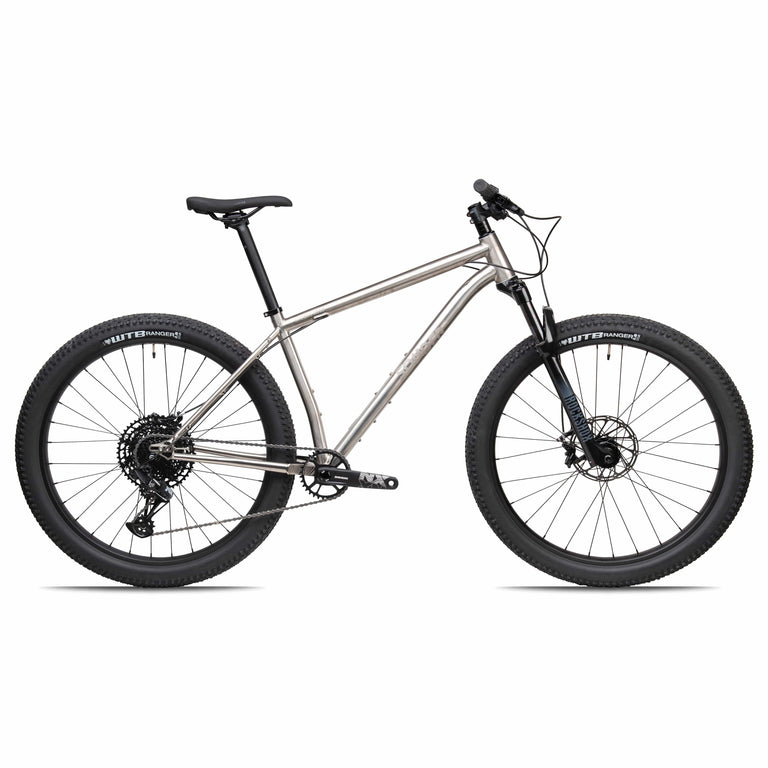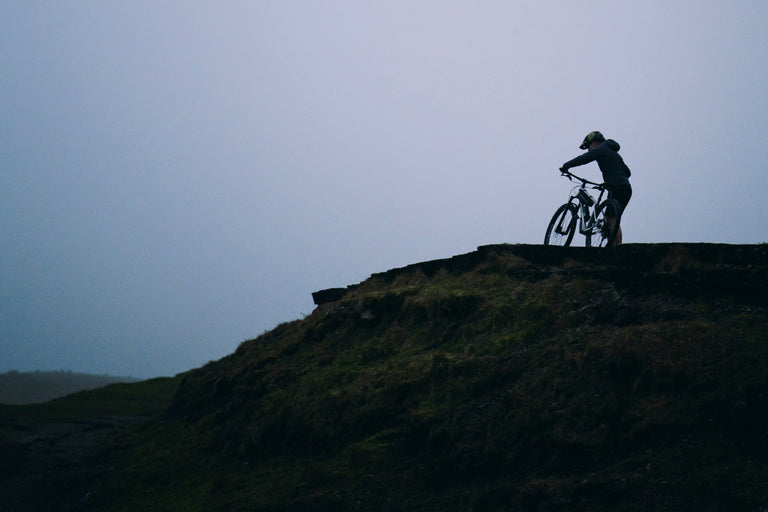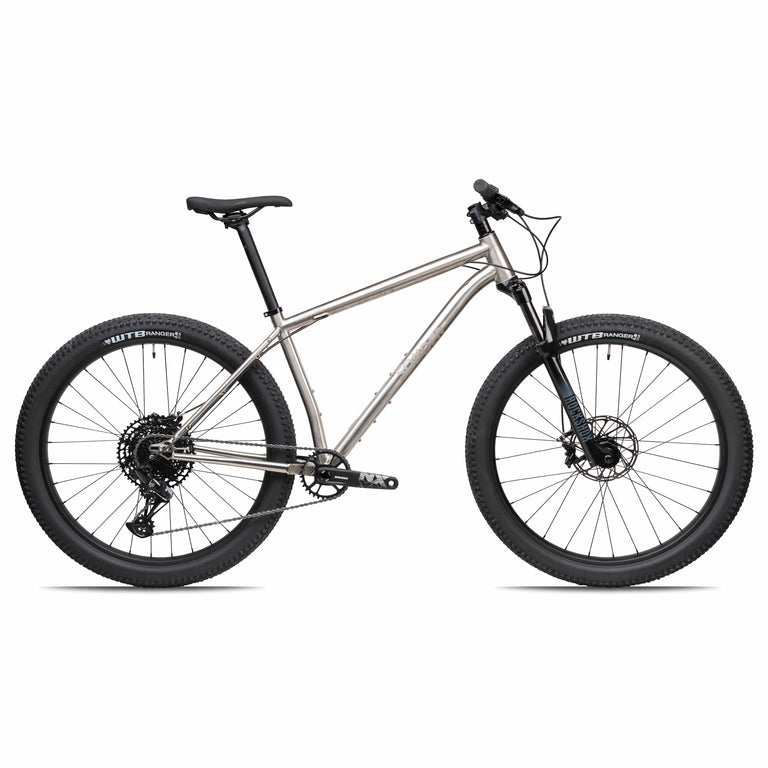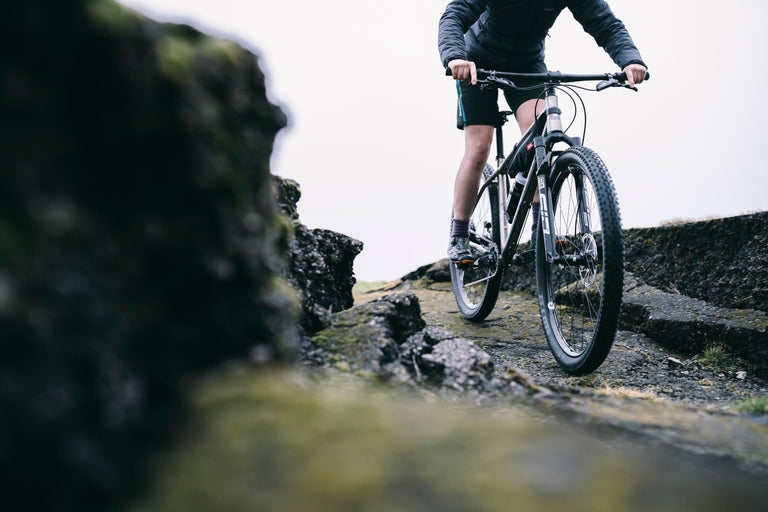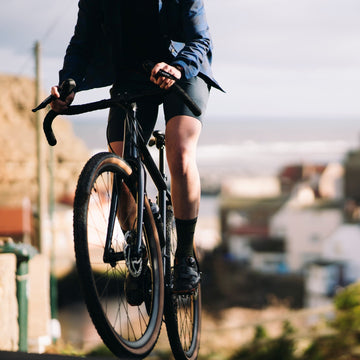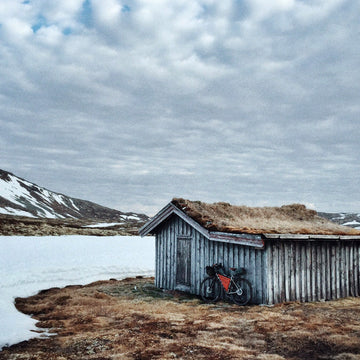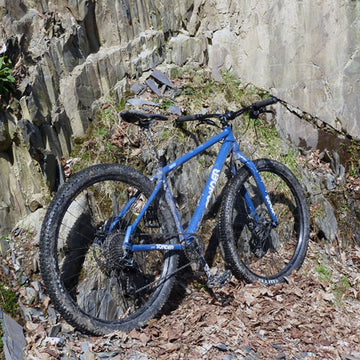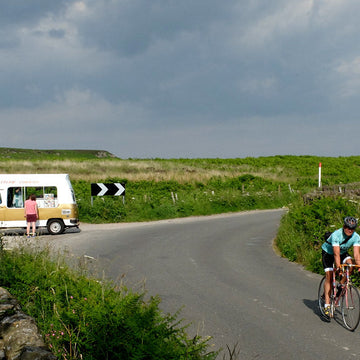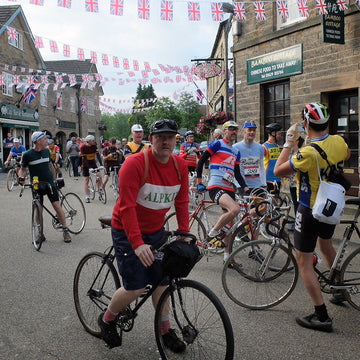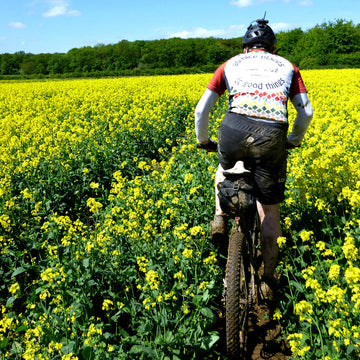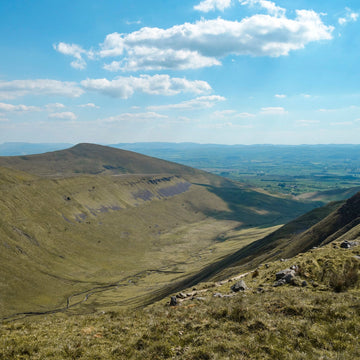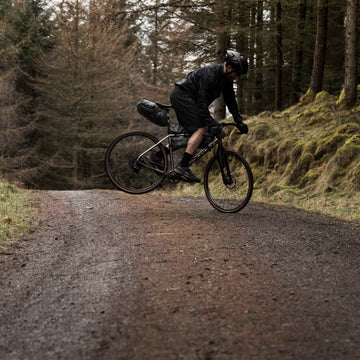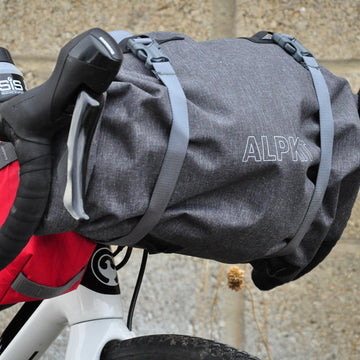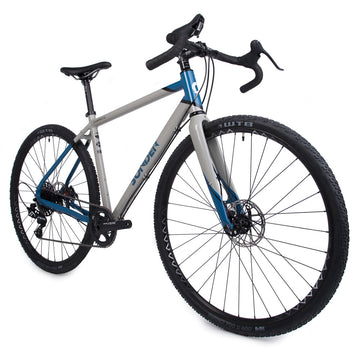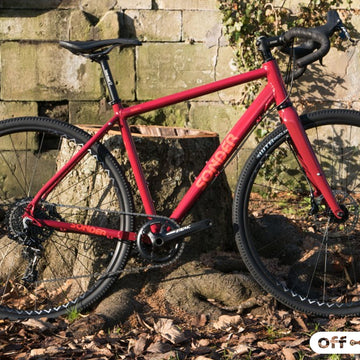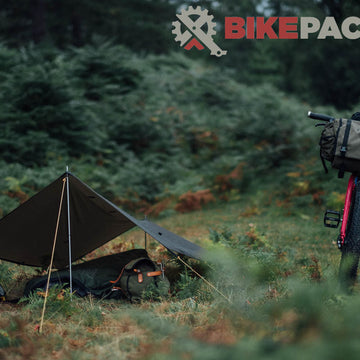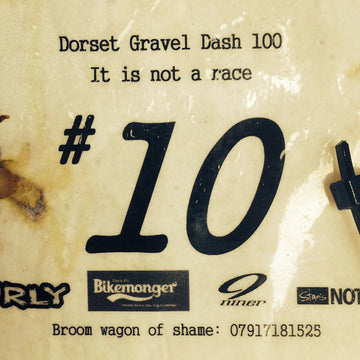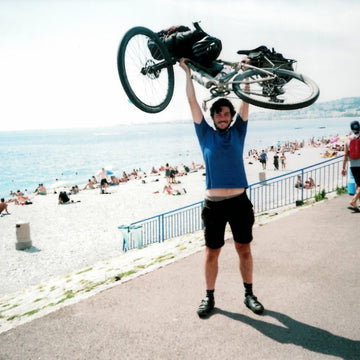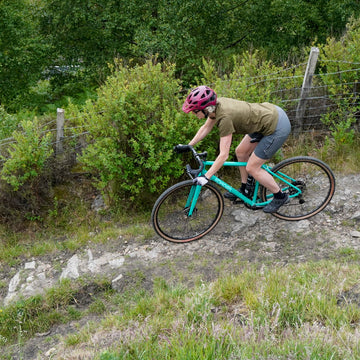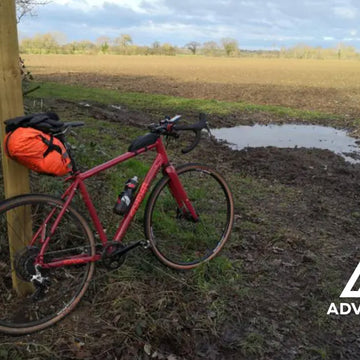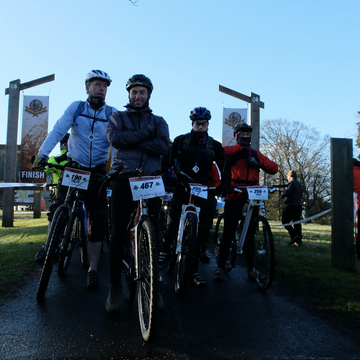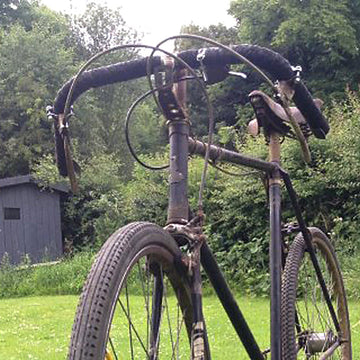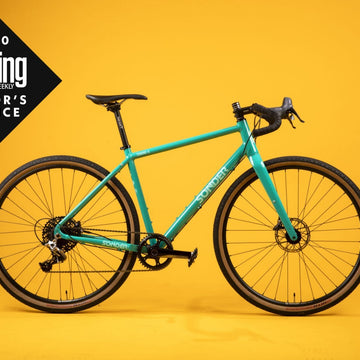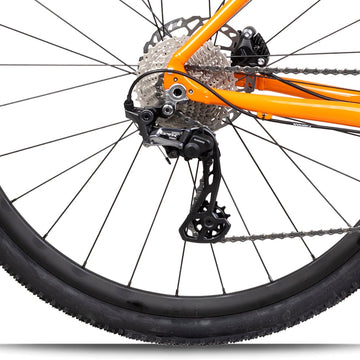
Gravel bikes are versatile machines that can take you away from traffic and toward adventure. Discover what gravel biking is and if an e-gravel bike suits you.
Gravel bikes seem to be all the rage right now. Maybe because they are. They’re the road bike’s fun younger sibling. They take you away from the traffic and barreling towards adventure. But what does gravel even mean? What are gravel bikes for? And do you really have to wear an unbuttoned checked shirt and SPD sandals to ride one?
A Brief Overview
- What is a gravel bike?
- What should I look for in a gravel bike?
- What is an e-gravel bike?
- Are gravel bikes good for touring / bikepacking?
- What is the difference between a gravel bike and a race gravel bike?
- Should I buy a mountain bike, a cyclocross bike or a gravel bike?
- What should I wear on a gravel bike?
- Should I buy a gravel bike?
What is a gravel bike?
A gravel bike is the lovechild of the mountain bike and the road bike. They give you the freedom to ride on almost any surface you could imagine. They have a relaxed geometry. And cover distances efficiently. But they’re still capable of some more serious off-road challenges.
What should I look for in a gravel bike?

Like all bikes, you can customise every aspect of your bike to perfectly suit your desired end use. But there are three stand-out factors when looking at gravel bikes: handlebars, geometry and tyre clearance.
Handlebars
Most gravel bikes have drop handlebars. They give you a low centre of gravity for fear-free singletrack descending on serious sends. Flared handlebars give you more control. And more space for your handlebar bag. Of course you don't need to have drop bars to ride gravel. If you prefer straight bars cool, we have those too, in fact we have a comprehensive selection of drop, flared, flat and hooped bars.
Geometry
Gravel bikes have a slacker head tube angle than road bikes, with a more upright riding position and a longer wheelbase. This makes them more comfortable and stable for flowy singletrack and nail-biting descents. If you want to get into the nitty gritty, compare gravel bike geometries.
Tyres
The tyre clearance on gravel bikes is typically suitable for 28mm to 47mm tyres. And they normally can accommodate either 700c or 650b wheels. 700c wheels roll more smoothly and maintain speed and momentum. But 650b wheels allow you to accelerate more quickly. And, due to their small size, they can fit wider tyres - for better grip on gnarlier terrain.
What is an e-gravel bike?
The benefits of e-gravel bikes are real. E-gravel bikes take all the great features of a standard gravel bike and add a battery and motor. This drive system provides assistive power, it is not a scooter - Sonder bikes are built to be ridden, so you still have the great experience of cycling.
As an example, the El Camino e-gravel bike is just 3kg heavier than a standard Camino and is easy to ride unpowered. You control where and when you use the power via convenient switches on the bars. It is your ride, you choose if you want to cruise along unassisted and save battery for the climbs, or drain the juice steadily throughout the day.
E-gravel bikes are designed for the mixed terrain of UK B-roads and bridleways. Think of a multi day adventure like the 350km King Alfred Way which includes stretches of tarmac, well compacted bridleways with steep technical stretches of rock and roots.
Are gravel bikes good for cycle touring and bikepacking?


Gravel bikes were designed with adventure in mind.
- They’re efficient. The further you travel, the more you can see. And the more you can get from your trip.
- They’re robust. They’re designed for off-road abuse. Meaning they can carry a heavier load without protesting too much.
- They’re versatile. The excitement of gravel biking begins where the road ends. You have the freedom of going anywhere. Off-road. On road. And everything in between.
Should I buy a mountain bike a cyclocross bike or a gravel bike?
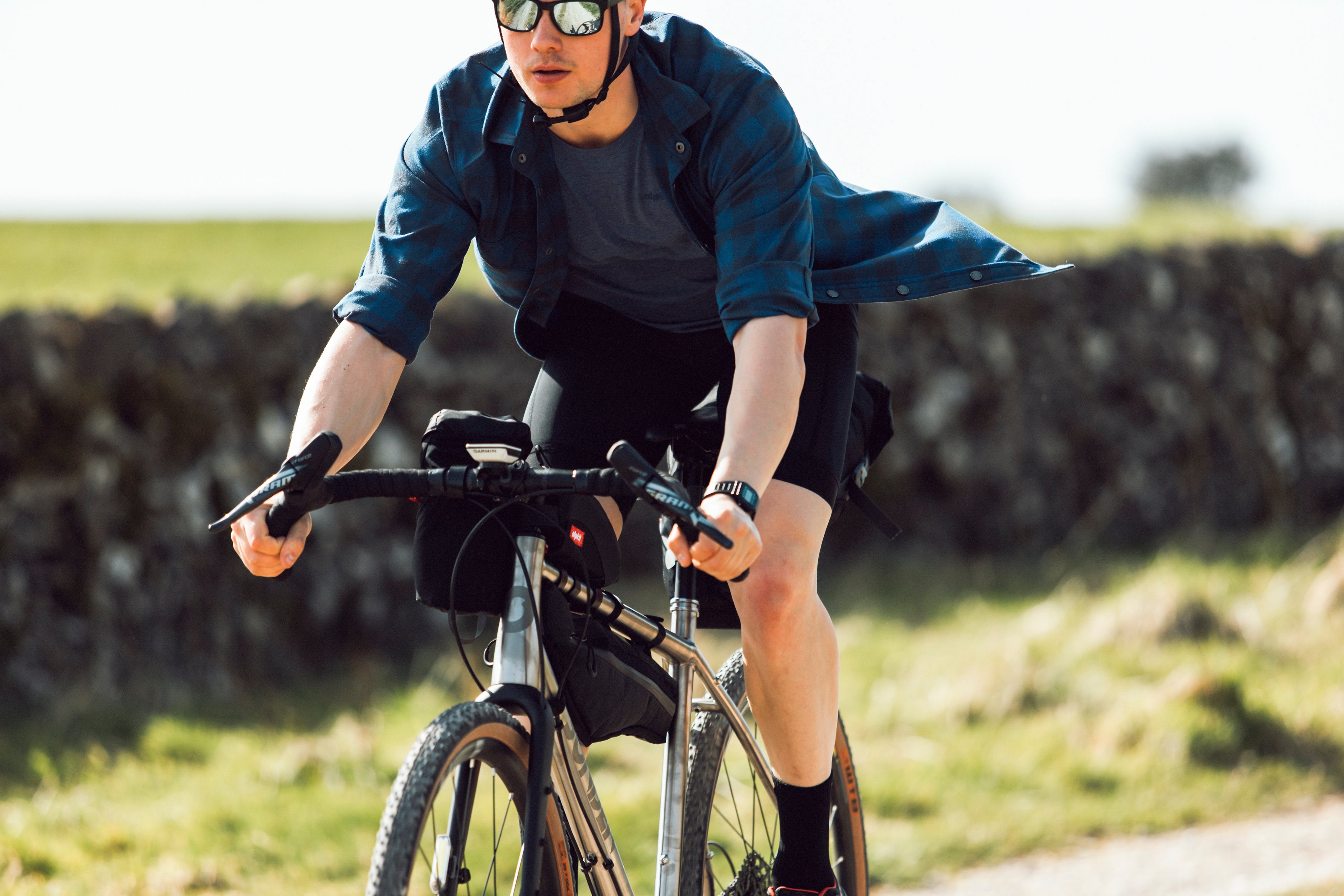
For efficiency over long distances, choose a gravel bike over a mountain bike. For comfort over technical over off-road sections, choose the burlier, knobblier-tyred-sibling: MTB.
Cyclocross bikes are for flat out speed and responsive handling on tight cornered courses. Go for the gravel bike if you want comfort, confidence and stability over long distances.
What should I wear on a gravel bike?

Whatever you want!
Want to go full on roadie aero and dress in skin-tight Lycra head to toe? Go for it. Leaning towards the baggies and flailing flannel shirt? Why not? Although, we will give you a word of warning. This sort of attire is better for when, to quote Alpkit Photographer Joe, you’re out for a “good time not a fast time”. In other words, when sweating it to be the first to the town sign is the lowest on your priorities!
Clothing choices are also much more dependent on the weather than on the road. If you’re riding over rough terrain, your kit might get wet, muddy and scratched up by the vegetation. You might want to go for something durable and weather resistant. Off-road, you’re further away from a warm café stop, an extra layer or two won’t go amiss. For more advice check out our series of articles on clothing for cycling.
Are gravel bikes good for cycle touring and bikepacking?
Both are designed for the same terrain, the difference is in the geometry of the frame. A gravel race bike is designed for speed and efficiency. It has a more aggressive geometry, which means a more bent-over riding position. This position helps in aerodynamics, allowing the rider to go faster. The frame is generally shorter and the wheelbase is smaller compared to a touring bike, making it more responsive and quicker to maneuver, especially in races or fast-paced rides.
In summary, a gravel touring bike focuses on comfort and stability for long, loaded rides, while a gravel endurance racing bike emphasises speed and agility for fast, efficient riding.
Can you attach bike luggage to a gravel bike?
You can attach lightweight bikepacking stylebike luggage, or panniers with the addition of a front or rear mounted pannier rack. If your fork has attachment points you can also utilise fork mounted cages.
Should I buy a gravel bike?

A resounding yes! Here are 5 reasons to buy a gravel bike:
- You can explore almost any A to B. All routes are open. The trails are your oyster!
- You can put road tyres on a gravel bike to double it up as a winter road bike
- Gravel bikes are ready and raring for bikepacking adventures
- Easy MTB trails can get a little boring. Re-discover the adrenaline inducing joy of mountain biking with a gravel bike
There aren't many looks better than gravel biking down a bridleway wearing a checked shirt, we promise!
Further Reading
Sonder Gravel Bikes
Camino Al Rival AXS XPLR
- SRAM Rival AXS XPLR 13-speed groupset
- Sonder Alpha I25 Gravel UK Made wheelset
Camino TI Force AXS XPLR
- SRAM Force XPLR 13-speed groupset
- Sonder Alpha I25 Gravel UK Made wheelset
Camino TI Rival AXS XPLR
- SRAM Rival AXS XPLR 13-speed groupset
- Sonder Alpha I25 Gravel UK Made wheelset
Camino Al Apex1 Hydraulic
- SRAM Apex 12-speed groupset
- Sonder Nova I25 Gravel UK Made wheelset
Camino Al Apex1 Flat Bar
- SRAM Apex 12-speed groupset
- Sonder Nova I25 Gravel UK Made wheelset
Broken Road Ti GX Eagle
- SRAM GX Eagle 12-speed groupset
- RockShox Reba Gold RL fork
- Sonder Alpha I25 Trail UK Made wheelset
Broken Road Ti NX Eagle
- SRAM NX Eagle 12-speed groupset
- RockShox Recon Silver RL fork
- Sonder Nova I25 Trail UK Made wheelset




